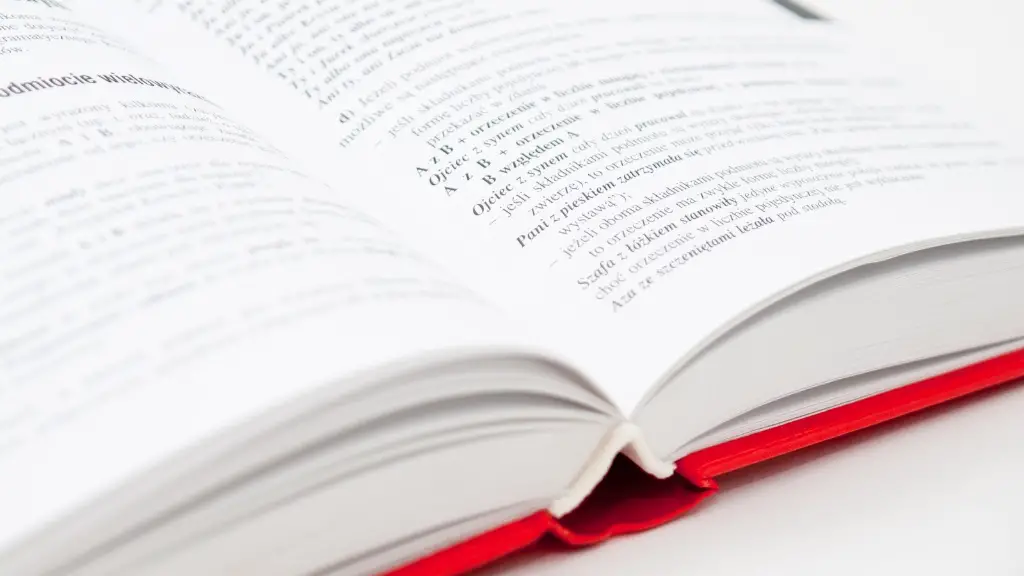The Unpleasant Feel & Uneasy Connotations of Poetry
Poetry has often been viewed as a tedious literary form, and is disliked by many because of its ornate structure and complex language. This sense of distaste is unsurprising when one considers the very nature of poetry: the intricate pattern of words, rhymes and meter often used to make the poems seem profound. To some, this is highly off-putting and renders the poem an incomprehensible mess. There is also a potentially embarrassing element to poetry which can make one feel helplessly vulnerable, just waiting to be judged. One of the most common reasons behind why people hate poetry is being forced to read or analyze it in school.
The Frustration of Criticisms
The experience of reading poetry can often be about a gap between what is intended and what the reader is able to interpret. Many people feel frustrated and helpless when trying to come to terms with their own difficulty in understanding a poem, particularly in a classroom setting. Criticisms from teachers or peers can contribute to a sense of inadequacy and put individuals off the genre ‘forever’. This, alongside the general atmosphere of comprehension which comes from technical poetry, can make poetry feel more like a chore than something pleasurable to explore.
Language & Its Affects on The Reading Process
People often feel alienated by the language used in poetry. Older works will contain language and syntax which is outdated and inaccessible to the modern reader. It becomes particularly difficult when certain terms or ideas are used, which may no longer be in usage or even understood. Oftentimes contemporary poetry reads like a foreign language to the uninitiated and reading through the poem appears nigh-on impossible. Even if people can access the language more easily, it can take a lot of effort to interpret and make sense of it. As a result, it can be difficult to recognize the feelings of euphony and loveliness that accompany a well-written poem, causing them to depress or anger rather than be uplifting.
The Difficulty of Appreciation
Many find it difficult to enjoy and appreciate poetry because of the continuous parsing, interpretation and analysis involved in understanding it. This often leads to people giving up and feeling trapped by the intellectual heaviness of poetry and its many implications. This can lead to the feeling of being overwhelmed by the poem’s structure, not knowing how or why certain words or phrases work in the way they do. In this way, the reader is unable to truly appreciate or experience the poem as it was intended.
The Intimacy & Thoughtfulness of Poetry
Poetry can be a deeply emotional and personal form. It requires thought and consideration in order to fully understand it, and this can be a difficult process for some people. Although thought-provoking and rewarding, the willingness to engage deeply with a poem is often off-putting. To some, the idea of spending great amounts of time and effort to understand a text is too much, and so they give up on the poem before getting the chance to appreciate and understand it.
A Lack of Engagement
A major factor behind people not engaging with poetry is its link to the academic world. It tends to be seen as an elitist form which appeals only to a certain kind of person, and so it can be alienating to those who perceive themselves as ‘outsiders’. This can create a sense of exclusion, where those without an in-depth education on the subject are not able to ‘break in’ and access the poetic internal world.
Inadequate Representations & Stereotypes
The way poetry has been portrayed in popular culture also adds to its lack of appeal. Its portrayal in films, books and songs are often stereotypical, outdated and romanticised. This can make it seem like something only people of a certain kind are able to understand and appreciate, leading to a feeling of inadequacy in many who aren’t familiar with it.
A Genre of Emotional Resonance
The content of certain poems can make it difficult to engage with as well. Some topics dealt with in poetry can be too emotionally intense, causing people to be overwhelmed with discomfort or empathy. It can be difficult for some to access and understand the complexities of a poem, a difficult task if the text is confronting. This can lead people to disconnect from the poem and find it easier to not engage with its content than to go through the process of understanding it.
Poetry as More than Just Words on a Page
Even if people are not able to appreciate the beauty of a well-crafted poem, its value and purpose should not be overlooked. Poetry has the power to uncover a range of emotions and experiences, helping to understand and process our own inner thoughts and feelings. Poetry can be used as an outlet to help people express their deepest thoughts and feelings. Rather than focusing on their lack of enjoyment or understanding of poetry, people should focus instead on the potential it has to offer.
The Need to Look Beyond First Impressions
When faced with a new text, it is important to remember that poetry can take plenty of time and effort in order to understand and appreciate it. Those who choose to engage with poetry may find that it is not as unpleasant or challenging as they first thought. It is also important to remember that everyone experiences poetry differently and that it is not something which has to be experienced in the same way by everyone.
The Benefit of Interacting with Poetry in Different Ways
Reading and writing poetry can be enjoyable if purposefully done. Participating in a workshop, study group or club can be an effective way to appreciate and interact with poetry. These groups can provide an enthusiastic and non-threatening atmosphere, making it more likely for a person to take risks and try engaging with the text. They can also provide a space to talk about and analyze poems, which can make the experience less isolating and can even be enjoyable.
The Ease of Appreciation
As well as getting involved in activities and workshops, there are other simple methods to approach poetry. Reading poems aloud or even performing them can be effective in aiding understanding and appreciation. Listening to the sounds, musicality and meaning helps to draw out a deeper understanding of the poem, which can make it much more enjoyable.
The Experience of Peace & Comfort
Another enjoyable way of learning to appreciate poetry is by creating a comfortable environment to read. Setting up a reading space with a warm beverage and an inviting book can help the senses and make the experience much more relaxing. Having a scented candle, a rug, some flowers or any other comforting elements can help to create a comfortable atmosphere that encourages the reader to appreciate the poem.
Challenging Perceptions & Ideas
Finally, reading poetry from different backgrounds and time periods can help explore and challenge a person’s observations and ideas. This can open up the mind to consider different possibilities and perspectives, which can foster a more tolerant, inquisitive attitude towards poetry. By opening up to the possibilities poetry can offer, one can learn to appreciate its beauty and, ultimately, enjoy poetry.



